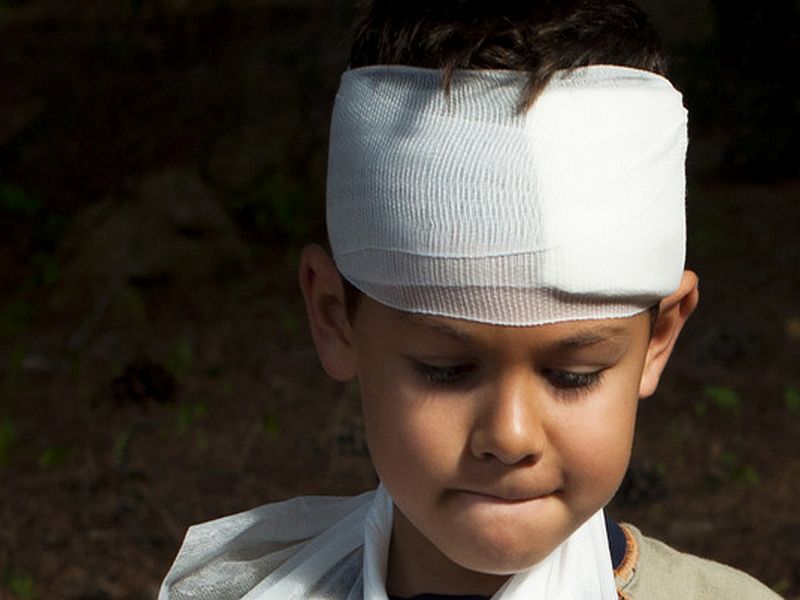MONDAY, May 7, 2018 (HealthDay News) — If your child lands in the hospital with an accidental injury, new research suggests you should watch for signs they may be struggling with what happened to them.
Investigators found that among children treated for serious injuries at one pediatric hospital, the odds of being diagnosed with a mental health condition rose by 63 percent in the next year.
The findings do not prove the injuries caused their mental health woes, the researchers said.
But in general, the children’s diagnoses were consistent with a “stress response” to their experience, said senior researcher Dr. Julie Leonard, of Nationwide Children’s Hospital in Columbus, Ohio.
The biggest increases were seen in “adjustment” disorders, behavioral disorders, sleep problems, eating disorders and learning difficulties.
The findings, published May 7 in the Journal of Pediatrics, add to evidence tying kids’ physical injuries to mental health effects.
But past studies, Leonard said, have largely focused on head injuries — which can sometimes cause problems through direct trauma to the brain.
The new findings suggest that children hospitalized with other types of physical injuries can be at risk, the researchers noted.
The results are based on medical records for more than 2,200 children and teenagers who were hospitalized for accidental injuries at Nationwide between 2005 and 2015. All were on Medicaid, the government health insurance program for low-income Americans.
Overall, the rate of mental health diagnoses was about 96 per 1,000 kids in the year before the injury. That increased to just under 157 diagnoses per 1,000 kids in the post-injury year.
Head injuries and burns were tied to particularly large increases.
Kids with head injuries were anywhere from two to five times more likely to have a mental health diagnosis in the year after their injury, versus the prior year — depending on their age.
Those odds also went up among young children who’d suffered burns. Kids younger than 5 were over eight times more likely to be diagnosed with a mental health problem after a burn injury.
With children that young, Leonard said, there are no good ways of screening for mental health issues. “So we’re reliant on what parents tell us about their behavior,” she explained.
It’s possible, Leonard said, that some kids had pre-existing mental health issues that were detected because families spent more time with health care providers after the injury.
That’s likely, in fact, according to Reshma Naidoo, director of cognitive neuroscience at Nicklaus Children’s Hospital in Miami.
The children in the study were all on Medicaid, she pointed out, and that’s an “underserved” group when it comes to health care. So, some kids might have been diagnosed because their parents had contact with providers who “asked the right questions,” Naidoo said.
In other cases, she said, the trauma of the injury, and being hospitalized for it, might have exacerbated anxiety or other issues kids already had.
With burn injuries, Naidoo noted, the recovery can be very painful, and that could obviously affect children’s sleep, behavior and thinking.
There are certain red flags parents can look for after a child has been hospitalized for an injury, according to Leonard. Those include sleep problems, trouble with schoolwork and “hypervigilance” — where children try to control everything in their environment and avoid situations that remind them of the injury.
If a child does have mental health issues, that does not have to mean they’ll be given medication, Leonard stressed.
“A lot of this can be directed not at the child, but the parents,” she explained.
For example, Leonard said, parents may need advice on getting their child back on a structured routine or “setting limits” for the child’s behavior.
According to Naidoo, parents should understand their child “needs time to heal” — so pushing them to catch up at school or get back to normal activities is not a good idea.
But neither is coddling. “If you’re overprotective,” Naidoo said, “that could actually exacerbate your child’s anxiety.”
More information
Children’s Hospital of Philadelphia has advice for parents on helping kids recover from an injury.
Copyright © 2024 HealthDay. All rights reserved.

